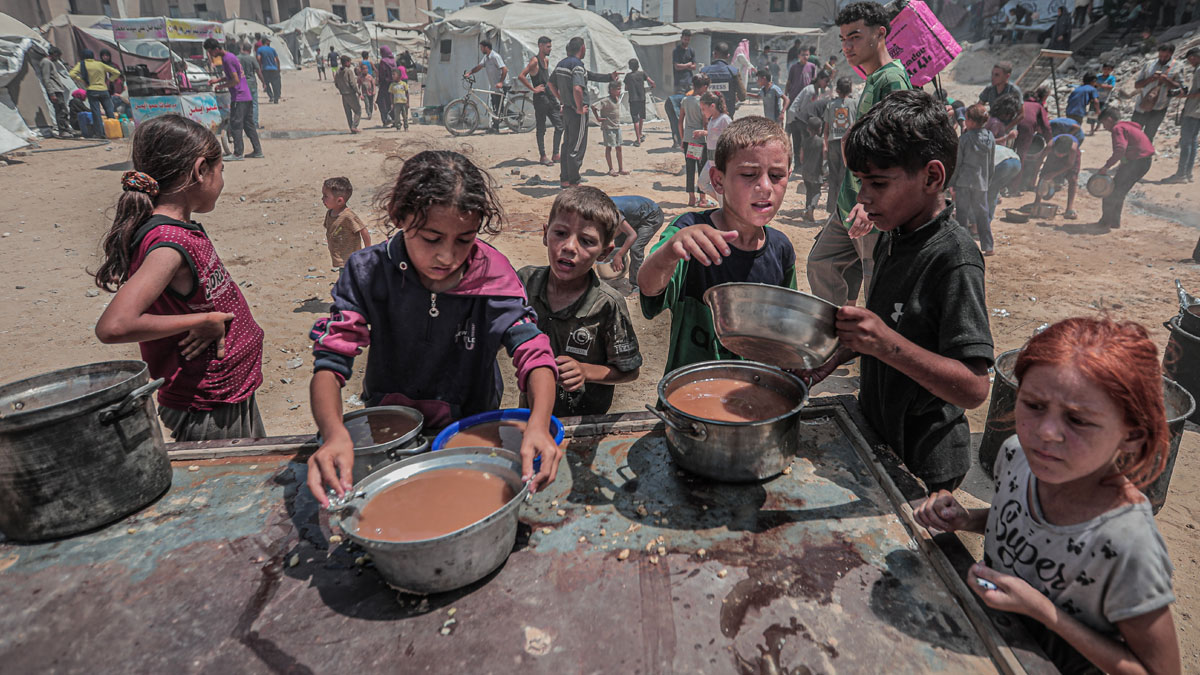
Opinion: Hollywood’s Silence On Gaza Raises Questions About Its Commitment To The Free Press
Palestinian liberation will not be coming to a theater near you.
Hollywood and its celebrities have always told people what to think, or more precisely, what they are allowed to think.
In a world ruled by influencer and celebrity culture, Palestinian resistance and liberation remain absent from the silver screen.
Swallowing the Israeli narrative is as fashionable as Ozempic, and while “think of the children” floods red carpets, the children of Gaza are quietly erased from the conversation.
- Hollywood largely ignores Palestinian liberation, favoring a Zionist narrative and erasing Gaza's children and resistance from its stories.
- Since an Al Jazeera team was killed, 269 Palestinian journalists have died, with independent reporting heavily suppressed and controlled.
- Prominent actors like Melissa Barrera and Susan Sarandon faced career backlash for pro-Palestinian views, signaling industry censorship.
- Hollywood sidelines Palestinian voices by cutting roles, blacklisting supporters, and sidelining documentaries critical of Israel.
- Journalist deaths in Gaza represent targeted silencing, reflecting Western complicity and skewed storytelling that erases Palestinian realities.
A few stars wear Palestinian flag pins, but Hollywood’s power structure remains firmly in service of a Zionist narrative.
Gaza’s human rights violations are largely ignored by Hollywood
Image credits: Anadolu / Getty Images
The ongoing Israeli bombardment of Gaza has created the deadliest period for journalists in modern history. Including the targeted killing of the entire Al Jazeera news team near Al Shifa Hospital in a drone strike, 269 Palestinian journalists have been killed.
International reporters have been barred from entering Gaza unless embedded with the Israeli military. This calculated suppression of independent reporting has shaped news coverage and Hollywood’s cultural output, sparking criticism over who controls the narrative.
The Committee to Protect Journalists (CPJ) called for the protection of Al Jazeera correspondent Anas Al-Sharif, who warned he was the target of an Israeli military smear campaign framing him as Hamas—a narrative many U.S. outlets echoed without question. On 10 August 2025, Al-Sharif was killed in an Israeli airstrike alongside five other Palestinian journalists: Mohammed Qraiqea, Ibrahim Al-Thaher, Mohamed Nofal, and Mohammed Al-Khaldi.
Image credits: Stephanie Keith / Getty Images
These were reporters documenting war crimes—an act theoretically protected under international law, but in practice treated as a punishable offense.
This raises urgent questions for film and television. War correspondents have long been framed as heroic truth-tellers, braving danger to inform the world. But in an era where speaking the truth about Palestine can end your career, will Hollywood’s future journalists be scripted as heroes or as threats to be silenced?
The backlash against pro-Palestinian voices in the industry has been swift and severe. Many have faced professional consequences, from career setbacks to outright blacklisting, raising questions about the industry’s supposed commitment to free expression and its willingness to defend press freedom in politically sensitive contexts.
Melissa Barrera was removed from the cast of Scream 7 for making ‘antisemitic’ comments
Image credits: Steven Ferdman / Getty Images
Melissa Barrera was removed from Scream 7 after condemning Israel’s attacks on Gaza. Her criticism of the bombing of civilians was labelled “antisemitic” by producers.
Poppy Liu described the climate as one of fear and self-censorship: “I know so many friends in the industry that are like, ‘I can’t be visibly pro-Pal. Otherwise, I don’t think I’m going to work again.’”
Susan Sarandon was dropped by her agency, lost multiple projects, and had her manager sever ties after attending a pro-Palestinian protest in New York.
Bella Hadid, vocal about her Palestinian heritage, lost an Adidas endorsement following pressure from pro-Israel lobby groups.
Meanwhile, Gal Gadot, a former IDF soldier and outspoken supporter of Israel, has secured five acting roles and 10 producer credits since October 7, 2023, the most notable being the Evil Queen in Disney’s live-action adaptation of Snow White.
Image credits: Annice Lyn / Getty Images
The censorship is not subtle. In Gladiator 2, scenes featuring Palestinian-Egyptian actor May Calamawy were reportedly cut due to her support for Palestine, reducing her role to silent, fleeting appearances despite it originally being significant.
Hollywood claims to stand for freedom of expression, but when that expression challenges the narrative of a close U.S. ally, the consequences are swift. The killing of journalists in Gaza is not just a press freedom crisis; it is already influencing who gets to tell stories, whose truths are heard, and which realities Hollywood chooses to erase.
The mass killing of journalists in Gaza is not an isolated war crime, but the logical outcome of the West’s commitment to protecting colonial narratives at all costs. Journalism and other forms of storytelling are supposed to be the last line of defense against propaganda: the professions that confront power with evidence.
But when the power being confronted is a Western-backed settler-colonial project, truth becomes dangerous, and those who tell it become expendable.
As Evie’s father says in V for Vendetta, “Artists use lies to tell the truth; politicians use them to cover the truth up.”
Gal Gadot, a former IDF soldier, secured five acting roles and 10 producer credits since October 7, 2023
Image credits: Gilbert Flores / Getty Images
In Palestine, killing journalists is not about battlefield chaos or “tragic accidents.” It is targeted. It is deliberate. It is the systematic dismantling of any record that might contradict the official Israeli (or Western) version of events, a narrative built on the erasure of Palestinian life, history, and legitimacy.
When cameras are destroyed and correspondents silenced, the colonial story regains control. The absence of witnesses allows the perpetrator to rewrite the crime scene.
Journalists from Al Mayadeen reported recently that Israel is killing journalists so there will be nobody to testify at its eventual reckoning.
This is why international outrage remains muted in Western capitals. Condemning the murder of Palestinian journalists would mean acknowledging that the West’s chosen ally is executing civilians for telling the truth.
It would mean admitting that “freedom of the press,” supposedly sacred to Western democracies, is conditional, invoked only when it serves imperial interests. The same governments that cite the deaths of foreign correspondents in Ukraine as proof of Russian brutality fall silent, or worse, justify Israeli strikes as “security measures” when the victims are Palestinian.
Influential Palestinian-American journalist Shireen Abu Akleh was killed by Israeli forces in 2022
Image credits: Al Jazeera Media Network
It is the colonial logic of knowledge production: deciding who is allowed to speak, who is allowed to record history, and whose words are deemed credible. Under this logic, Palestinian journalists are not neutral observers. They are enemies simply by existing in a place Israel seeks to control. Killing them is not a breakdown of Western values; it is their enforcement in imperial form.
Palestinian activist Odeh Hathaleen, who helped make the Oscar-winning documentary No Other Land, was shot dead in a settler attack last month, and Hollywood’s silence was deafening.
While No Other Land, a documentary about settler violence and Palestinian displacement in the West Bank, did win an Academy Award, it received violent criticism rather than support.
The film struggled to find a U.S. distributor, forcing its makers to arrange a one-week run at Lincoln Centre in November to qualify for the Oscars. After the awards, Hamdan Ballal, a Palestinian co-director, was detained by Israeli settlers, but the Academy’s statement on the attack omitted both his name and the film’s title.
The Palestinian and Israeli journalists who made the film were criticized by Hollywood heavyweights for both the documentary and their acceptance speeches, which were sharply critical of Israel’s actions in Gaza. In telling the story of Palestine, creators are met with censure and censorship.
The logic that truth is only valid if it serves power is embedded in Hollywood’s storytelling machinery. Gaza’s journalists are erased with missiles; Hollywood erases them with scripts.
On screen, the Palestinian voice is either absent or cast as the antagonist, the agitator, the suspect. Western heroes are framed as arbiters of truth, even when the truth they deliver is partial, sanitized, or outright fabricated. Hollywood has long normalized the existence of Israel while ignoring Palestine.
When the industry avoids telling Palestinian stories—or tells them only through an Israeli or Western lens—it is engaged in the same work as those who target journalists: controlling the narrative by removing inconvenient witnesses.
Real-life reporters like Shireen Abu Akleh or Anas Al-Sharif are never given the cinematic tributes Hollywood reserves for foreign correspondents killed elsewhere, because their deaths undermine the colonial script. They are martyrs for a truth the West cannot admit exists.
Even “inspired by true events” dramas are carefully calibrated to avoid destabilizing the imperial viewpoint. Stories of Middle Eastern conflict are more likely to feature Western journalists parachuting into the region than to center the local reporters who risk everything daily.
Many inside Hollywood’s well-oiled machinery protested when AJ+ journalist Bisan Owda was nominated for an Emmy for It’s Bisan From Gaza – and I’m Still Alive, a short film documenting the early days of Israeli bombardment and its impact on everyday life in Gaza.
The Creative Community for Peace, a pro-Israel nonprofit, issued a letter condemning the nomination, alleging without evidence that Owda was affiliated with the Popular Front for the Liberation of Palestine (PFLP), designated a “terrorist organization” by several Western states.
Variations of this smear have appeared in nearly every criticism of Owda and her work.
By sidelining these voices, Hollywood perpetuates erasure and rewards audiences for consuming a safe, familiar version of events, one in which the West remains the moral compass.
The killing of journalists in Gaza and their absence from Hollywood’s narratives are two expressions of the same colonial commitment: ensuring that history is told only by those authorized to tell it, and that the colonial present remains unchallenged in the collective imagination.
The views and opinions expressed in this article are solely those of the author and do not necessarily reflect the views of BP Daily or its staff.
936views
Share on FacebookIt's funny, because I don't see many celebrities calling out Hamas war crimes either. Why not talk about "Islamist narrative" then, as the author does? Remember who started the war and could end it anytime... Israel is not the only one guilty in this war. And if we talk about journalists, let's talk about journalist killed by Hamas, and how there is no independant journalist in Gaza criticizing Hamas. All these accusations against "Western" can be said about Hamas. A really one-sided bias author...
It's funny, because I don't see many celebrities calling out Hamas war crimes either. Why not talk about "Islamist narrative" then, as the author does? Remember who started the war and could end it anytime... Israel is not the only one guilty in this war. And if we talk about journalists, let's talk about journalist killed by Hamas, and how there is no independant journalist in Gaza criticizing Hamas. All these accusations against "Western" can be said about Hamas. A really one-sided bias author...


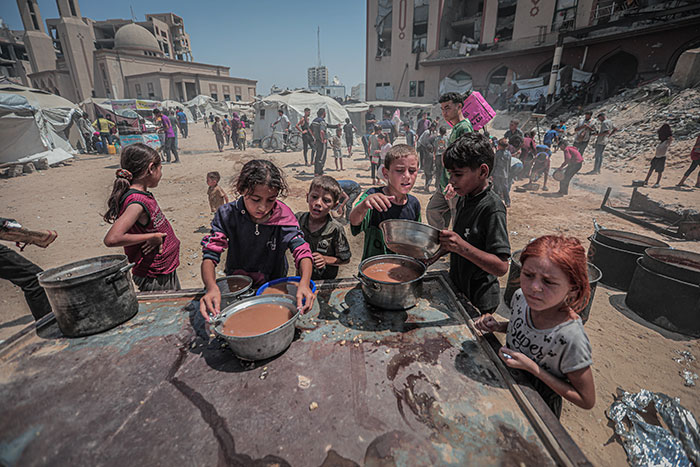
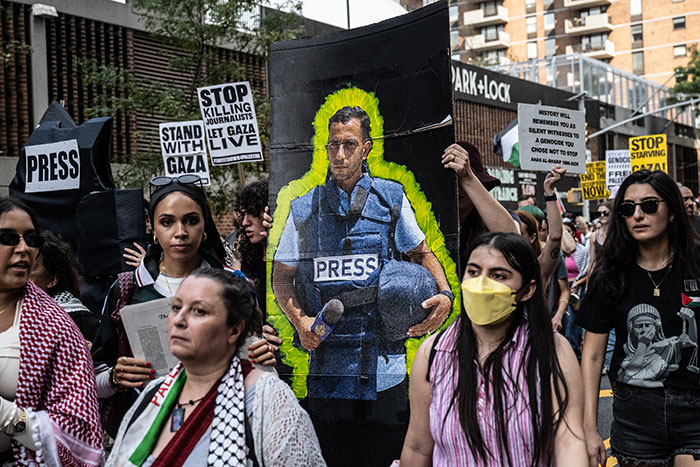

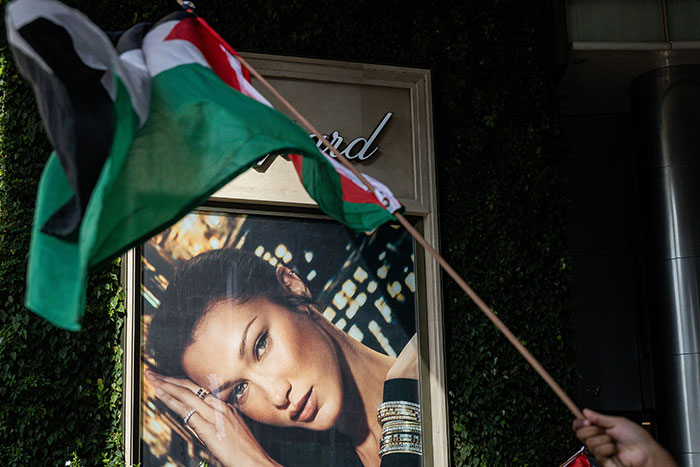

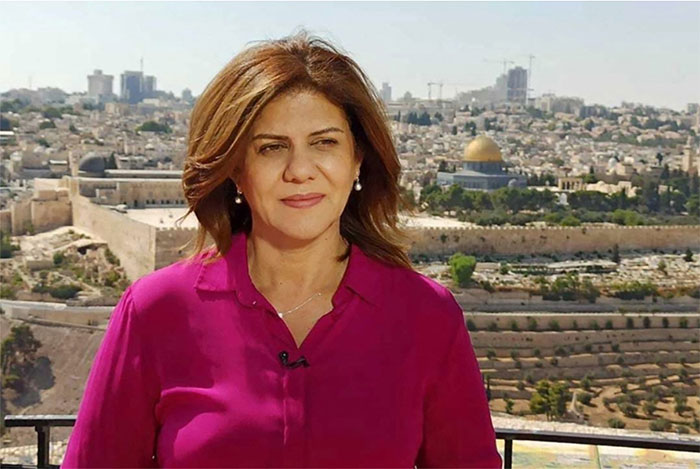



16
1